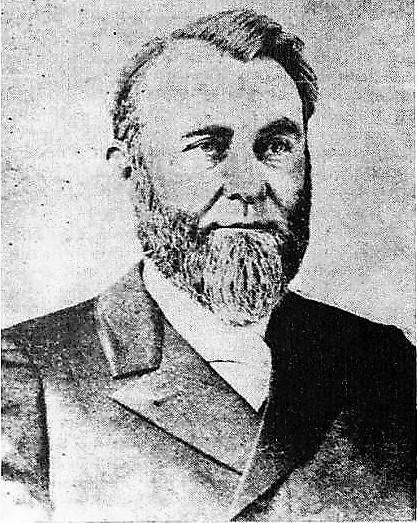
John Alfred Banum Wilson, son of a sea captain, was born Sept. 14, 1848 in Milton, Del.
Wilson attended grade school in his hometown, but many of his formative years were spent at sea with his father. Not only did he learn mariner skills, but it was where he educated himself by studying Greek and Latin.
In 1871, he gravitated to the ministry as a member of the Wilmington (Del.) Conference of the Methodist Episcopal Church and became well-known as a lecturer, pastor and temperance worker.
Wilson also distinguished himself with his deep-rooted beliefs in treating Blacks with dignity and respect. John H. Nutter, a Black minister of the Delaware Conference, described Wilson as a “Christian man and friend of the colored people.” As a consequence, the Wilson family was ostracized, particularly for its fervid support of providing Blacks a formal education.
Between 1882 and 1886, Wilson was presiding elder of the Methodist Episcopal Church’s Salisbury district. It was likely then that he befriended the Rev. Joseph Waters , a Black pastor from neighboring Somerset County. What is certain is that both men found common bonds in Methodism and education. Undaunted by racial barriers and prejudice, they publicly advocated for an academy to advance education for Blacks.
Efforts by Wilson and Waters were not without challenges, including finding a suitable location for a school. The ministers eventually settled on a property in Princess Anne Wilson purchased in June 1886 to be his family’s residence.
That property, known as “Olney,” included 16 acres and one building. Aware that selling property to Blacks would raise more than eyebrows, and to ensure it would be used for a school, records show Wilson deeded Olney to the Centenary Biblical Institute on Aug. 24, 1886 for $2,000.
Barely three weeks later — the day before Wilson’s 38th birthday — a school established at Olney welcomed its first nine students. By the end of its first year, enrollment stood at 37 — all but one a Maryland resident.
The following spring, the Delaware Annual Conference minutes singled out Wilson for “his manliness, ingenuity and zeal, manifested in securing the property.”
The Delaware Conference, which founded the Centenary Biblical Institute in Baltimore in 1866 expressly for the higher education of Blacks, would oversee and provide support to the Delaware Conference Academy in Princess Anne into the early 20th century.
Wilson died April 30, 1906, stricken by typhoid fever in Green Valley, Calif., where he moved after severing “his connection” to the Wilmington conference, according to a brief death notice in the Kent News in Chestertown, Md. He was 57. Wilson is interred in Goshen Cemetery in his native Milton, Del., alongside his spouse, the former Mary E. Jefferson.

